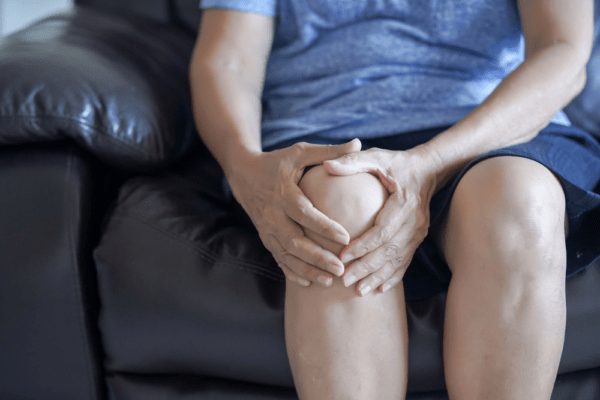The process of inflammation works as a defense mechanism by your body to fight against any harm caused in terms of injury, infections, damaged cells or irritants. It is our body’s biological response to heal itself. Inflammation is helpful when you suffer an injury, for example, if you bust your knee or ankle. The swelling, redness and pain can be uncomfortable but is actually a good thing as your body is in the process of repairing the injury. However, it is not a good sign if the inflammation lasts longer than expected, because then it turns into what is known as chronic inflammation.
Chronic inflammation, as opposed to acute inflammation, persists for months or even years. The immune system fails to overcome the problem, letting the inflammation stay active which can have a negative effect on tissues and organs. Chronic inflammation can also trigger digestive issues, joint pain, rashes, fatigue and asthma.
Symptoms of Chronic Inflammation
You might not always be able to tell if you’re suffering from chronic inflammation since its signs are more vague and subtle. This can make the condition go undetected for a longer period.
When your body is constantly aflame, you can notice signs like:
- Fever
- Fatigue
- Chest or stomach pain
- Rashes
As the inflammation progresses, it can damage your organs, joints and important arteries. All of this then can lead to serious conditions like heart disease, diabetes, blood vessel disease, obesity and Alzheimer’s. In some cases, chronic inflammation can also be the cause of cancer, although not much is conclusive on this front.
Causes of Chronic Inflammation
What can cause of chronic inflammation in the body? Inflammation can occur due to various triggers. Few reasons you could be suffering from inflammation can include:
- Your immune system’s failure to eliminate the problem.
- An autoimmune disorder
- Overlooked signs of acute inflammation can lead to chronic inflammation.
- Prolonged exposure to irritants like polluted air or harmful chemicals
How to Treat Chronic Inflammation
You can treat chronic inflammation with medications and also through some lifestyle changes. Some of the preventive options are listed below.
Medication
Going with the medication route, you can treat your chronic inflammation through prescribed or over-the-counter Nonsteroidal anti-inflammatory drugs (NSAIDs), such as ibuprofen, aspirin which are effective in reducing pain and inflammation.
Taking the help of supplements is another way you can help reduce chronic inflammation. Supplements like fish oil pills, curcumin and lipoic acid are associated to fight against the flamed body. Different herbs like ginger, cayenne, and garlic are also said to help with chronic inflammation.
Lifestyle Changes
Lifestyle changes also play a vital role as to how you manage your chronic inflammation signs.
1. The Mediterranean diet
The Mediterranean diet is well-known to fight against many conditions like heart disease, type 2 diabetes, Alzheimer’s and Parkinson’s disease and more. It also helps soothe chronic inflammation.
The thing that makes Mediterranean diet so beneficial is that is an anti-inflammatory diet. The diet is high on foods and products which have anti-inflammatory properties, like fresh fruits and vegetables, nuts, whole grains, fish and healthy oils.
2. Breathe in fresh air
Breathing fresh air can help reduce inflammation levels since we are constantly surrounded by pollution which can raise inflammatory levels in the body.
If you have no access to fresher air in your surroundings, you can make use of air filters to prevent your chronic inflammation from getting worse.
3. Cut back on inflammatory products
If you follow the Mediterranean diet, you have to eliminate or cut down on foods that increase inflammation internally. In any case, cutting back on foods like red meat, deep fried foods, trans oil/fats and processed foods can help with keeping inflammation in control.
4. Work out
Working out and keeping active is known to help eliminate a lot of health problems, including chronic inflammation. Regular exercise or working out can go a long way to help with chronic inflammation. According to professionals, light exercising anywhere between 20-45 minutes is an excellent way to combat signs of chronic inflammation.
5. Sleep better
When you are well-rested your body has a stronger ability to fight against illnesses, including inflammation. According to a study published in JAMA Internal Medicine, “white blood cells taken from otherwise healthy sleep-deprived individuals produced significantly higher concentrations of inflammatory signals compared to those from rested individuals.”
Taking of your body and mind has a major role in the management of chronic inflammation. Consult your medical professional if no measures seem to be improving your signs. Your doctor can help guide you better and diagnose you with appropriate treatment.




